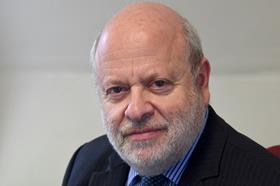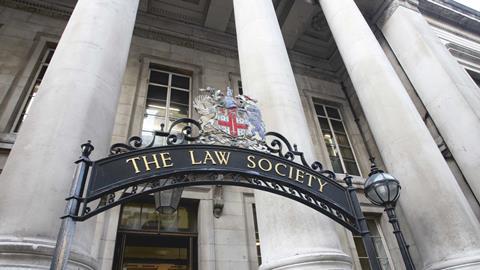Here is a cocktail party conversation stopper: I am the Law Society’s representative to the UK delegation to the CCBE.

Since my expenses to attend the CCBE’s latest plenary session in Lausanne last week are paid for out of the practising certificate, this is my report.
(Before anyone starts speaking of junketing in exotic locations, I can assure you that it rained nearly all the time over the two days I was there, and the streets are so steep that I can understand why it is the home of the Olympic movement. If you are the president of the CCBE and reading this: the hospitality of the Swiss Bar at the Vaud Parliament and Olympic Museum were exemplary, and Lausanne has the greatest views over Lake Geneva.)
The CCBE is the Council of Bars and Law Societies of Europe, which brings together 46 national European bars, including our own. The UK delegation is made up of representatives of our three jurisdictions and six professions. Our complicated structure is not unique, although maybe the most baroque. The French have to juggle 3 organisations, the Germans, the Belgians and the Poles 2 each.
The agenda would have been familiar to any English or Welsh solicitor, although maybe not the language, since about two-thirds of the proceedings were in French (interpretation provided). If there is no interpretation, English remains the most common language of CCBE dialogue.
We began the plenary session with two items on which everyone could agree.
First, there was shocked condemnation of the Tunisian authorities for the recent violent arrest of lawyers Sonia Dahmani and Mehdi Zagrouba, as well as the acts of torture perpetrated against him, and the attempted arrest of lawyer Nidhal Salhi.
This was followed by hearty congratulation for those from the CCBE who had initiated and worked so hard on the European Convention on the protection of lawyers, which has just concluded its substantive work at the Council of Europe. The outcome will be a ground-breaking instrument, the first international convention to protect lawyers’ rights, including our own. The UK bars were involved in successful last-minute lobbying to protect the cab-rank rule in the Convention. And it was the CCBE which set the ball rolling to see the convention launched, and helped to ensure it will be fit for purpose.
There was less agreement during the round of introspection, from which all organisations suffer: what does the CCBE exist for? The commentary on the recent Law Society Council motion on what support should be given to solicitors who appear before the Solicitors Disciplinary Tribunal – does the Law Society exist for that purpose? Is it a trade union? – was mirrored in a discussion about whether the CCBE should offer training directly to lawyers or merely lobby on training policy, whether it should apply for EU funds in its own name or keep itself independent from hand-outs from the EU, and so on. These debates help unite an organisation around a common purpose.
As for the substantive topics of law and legal policy, each had resonance with our own discussions at home, even when they centred on EU legislation in which we have no direct interest (and have no say, either, under own post-Brexit status as an affiliate member of the CCBE).
For instance, key principles and best practices in the relationship between lawyers and legal expenses insurers were approved. In a long and interesting document, one best practice stood out: some countries have set up dispute resolution centres (Switzerland) or joint commissions (Belgium) to quickly resolve problems that may arise in the lawyer-insurer relationship. Although their decisions are not binding, these systems constitute a means of discussing and resolving conflicts.
Immigration was inevitably on the agenda. We are not alone as lawyers in responding to political initiatives to control our frontiers. Last November, the European Commission published a draft directive laying down minimum rules to prevent and counter the facilitation of unauthorised entry, transit and stay in the EU. In an analysis of this so-called anti-smuggling directive, the CCBE agreed to call on legislators to make the provisions more legally precise and, in particular, not to allow any misuse of the directive to intimidate lawyers when they provide legal or humanitarian assistance to migrants and asylum seekers.
There was more, much more: for instance, discussion around a proposed addition – long overdue - to the CCBE Code of Conduct prohibiting discriminatory behaviour by lawyers; and a demonstration of the wonderful new videos, which the CCBE helped to produce, on how to represent clients at the Court of Justice of the European Union, by using concrete examples of hearings and best practices.
My job is to ensure that there is a dialogue between the CCBE and the Law Society, and to carry messages between the two.
I am very popular at cocktail parties.
Jonathan Goldsmith is Law Society Council member for EU & International, chair of the Law Society’s Policy & Regulatory Affairs Committee and a member of its board. All views expressed are personal and are not made in his capacity as a Law Society Council member, nor on behalf of the Law Society
































No comments yet